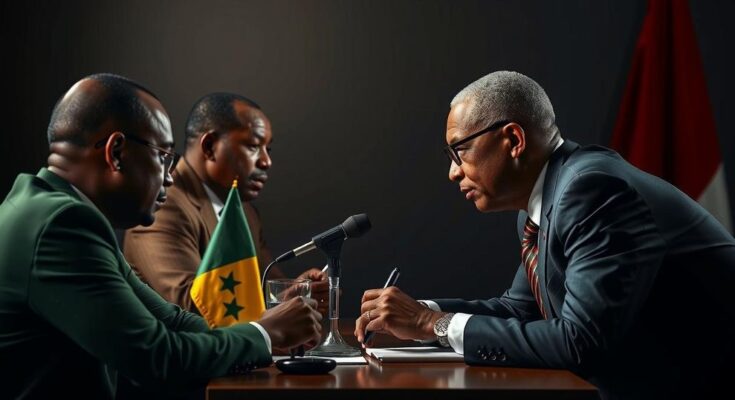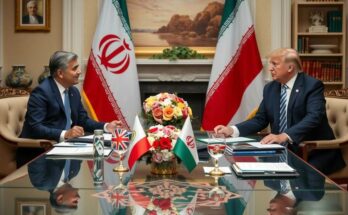President Salva Kiir of South Sudan confirmed that Tumaini peace talks will integrate hold-out groups into the existing Revitalized Peace Agreement rather than create a new framework. The discussions, aimed at speeding up negotiations, emphasize inclusivity to prevent conflict recurrence. UN officials urged for urgent action to meet commitments, address humanitarian challenges, and ensure electoral preparedness by December 2026.
President Salva Kiir Mayardit of South Sudan reaffirmed his commitment to the Tumaini peace negotiations, emphasizing that the talks are not designed to create a new agreement or undermine the existing Revitalized Peace Agreement. During the opening of the 8th annual Governor’s Forum in Juba, he stated that the purpose of the talks is to integrate the concerns of hold-out groups into the current peace framework. Furthermore, he highlighted the necessity of restructuring the government delegation to expedite the negotiation process, underscoring the importance of inclusivity to prevent further conflict.
The Special Representative of the Secretary-General for the UN Mission in South Sudan, Nicholas Haysom, expressed disappointment over the decision to extend the transitional period by two years and delay elections. He called for a pragmatic plan for the next two years and urged all parties to act swiftly in executing their commitments to the people of South Sudan. In response to the transitional extension, President Kiir noted that this was a collective effort to foster lasting peace, urging potential electoral candidates to prepare for the elections scheduled for December 2026.
During the forum, Mr. Haysom remarked on the widespread desire among South Sudanese citizens and leaders to shift from continuous conflict to a stable and peaceful future. He called on governors to confront the underlying causes of conflict and improve basic service delivery through effective public financial management. The Governor’s Forum serves as a crucial platform for enhancing collaboration among leaders and addressing pressing issues facing the nation, including humanitarian crises affecting millions.
Anita Kiki Gbeho, Deputy Special Representative of the Secretary-General, stressed the importance of ensuring unhindered humanitarian access amid the ongoing challenges. Access issues persist due to various constraints and violence against humanitarian personnel. She expressed hope for clear directives to facilitate humanitarian efforts, ensuring they reach those in dire need across South Sudan.
The Tumaini peace negotiations involve discussions between the South Sudanese government and hold-out groups who have not signed the existing Revitalized Peace Agreement. The negotiations aim to integrate these groups into the peace process without undermining the foundations already set by the 2018 agreement. The current climate in South Sudan is characterized by significant humanitarian needs, a large population facing food insecurity, and challenges such as flooding and violence stemming from regional conflicts.
In conclusion, President Salva Kiir’s reaffirmation of commitment to the Tumaini negotiations highlights the South Sudanese government’s focus on inclusivity and constructive engagement with hold-out groups. The extension of the transitional period signifies the challenges the country faces, yet it also reflects a collective intent to achieve sustainable peace by focusing on upcoming elections and addressing fundamental humanitarian needs. The outcome of these discussions will be pivotal in shaping the path towards stability in South Sudan.
Original Source: www.socialnews.xyz




